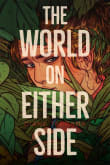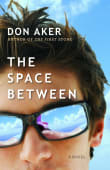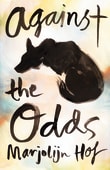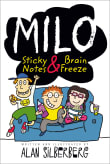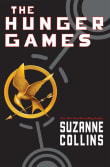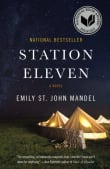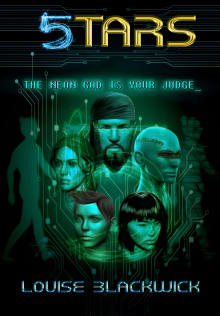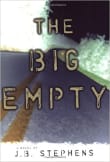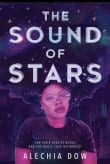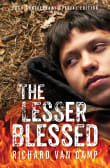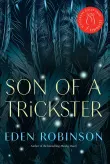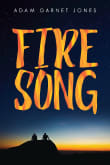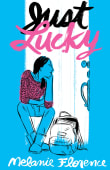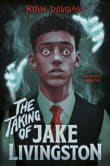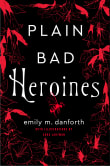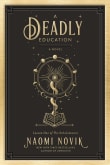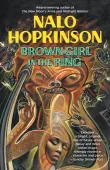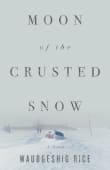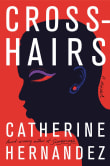The Marrow Thieves
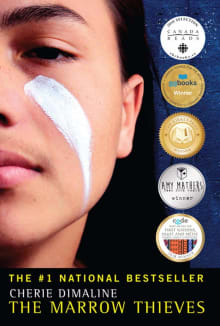
Book description
Humanity has nearly destroyed its world through global warming, but now an even greater evil lurks. The indigenous people of North America are being hunted and harvested for their bone marrow, which carries the key to recovering something the rest of the population has lost: the ability to dream. In…
Why read it?
8 authors picked The Marrow Thieves as one of their favorite books. Why do they recommend it?

Cherie Dimaline's book really spoke to me because, in addition to great story-telling, it sets Native people in a post-apocalyptic setting.
As Native people, we are so often portrayed as ancient rather than modern. So this work connected the ancient and the modern in a novel way. With relatable characters searching for family and community, it was relatable and real even in the world the book describes.
From Anton's list on indigenous empowerment.

There are so many things to love about this extremely beloved YA adventure novel about a futuristic world where a pandemic has ravaged most people’s ability to dream…except for Indigenous people, who are hunted for their bone marrow, which is believed to contain their dreaming ability.
It’s a haunting, exciting, eerie, and important book, but of the many things it underlines is the importance of found family, of learning to trust and find solace and protection and strength from the people we choose to be with. A beautiful lesson in a book full of good ones.
From Rebecca's list on community and connection.

The novel feels futuristic and speculative, all at once.
Reviving the idea of reservation schools, the novel imagines even more insidious ways how these schools might be used to strip native people of culture and personhood while also imagining ways of resistance. It’s very much about community and the power of storytelling.
Even in such catastrophic times, there is joy and real hope.
From Akil's list on weird sci-fi to reimagine the world around you.
If you love The Marrow Thieves...

Marrow Thieves is a YA novel set in a dystopian future where most people have lost the ability to dream. Only Indigenous people can still do so, and are hunted for their bone marrow that can temporarily cure the condition.
While fast-paced and accessible to young people, this is a complex, provocative story, addressing themes of genocide, colonialism, residential schools, and climate catastrophe that many Canadians would prefer to ignore.
From Rachel's list on Canadian dystopia (that aren’t The Handmaid’s Tale).

I get chills from some dystopian novels as easily as I do from books about the dead. In The Marrow Thieves, Native people are hunted by the Canadian government for their marrow, which contains the ability to dream—an ability that has faded as the human population has died off and the land has become uninhabitable in a not-too-distant future. The protagonist, Frenchie survives in the woods with a group of Indigenous people, learning some of his history and language from its members. Here, the at-the-edge-of-my-seat fear comes from the Recruiters—always just steps behind Frenchie, lurking in the trees or…
From Natalie's list on YA to give you chills.

The Marrow Thieves was a smash hit in its publication year and explores the continued colonial exploitation of Indigenous people. It may be the most well-known of the post-apocalyptic Indigenous speculative fiction novels that have come out recently, setting Indigenous peoples in a not-so-distant future where traditional knowledge is the key to their survival. The author, Cherie Dimaline, is from the Georgian Bay Métis Nation, a part of the Métis Nation of Ontario.
From Regan's list on coming-of-age by Indigenous authors.
If you love Cherie Dimaline...

In the world of The Marrow Thieves, the apocalypse is due to climate change and a sickness that robs people of the ability to dream. When it’s discovered that marrow from Indigenous people can restore dreams to the afflicted, fifteen-year-old French is forced into hiding with a group of other Indigenous Canadians, traveling ever northward as they flee the marrow thieves. I appreciated the survival skills, found family, coming-of-age story, ripples of the horrors that were residential schools, and fight to preserve Indigenous lives and culture found within these pages.
From L.J.'s list on post-apocalyptic by female authors.

I just taught this book to my college class and they loved it too. It’s set in the future, and it’s written by a Métis author – but this book is really about an attempt to wipe out a culture. The narrator Frenchie is mourning the deaths of his family members, but he is also courageously attempting to rebuild his life and preserve his culture.
From Monique's list on to read if you are are obsessed with death like me.
Want books like The Marrow Thieves?
Our community of 12,000+ authors has personally recommended 100 books like The Marrow Thieves.


